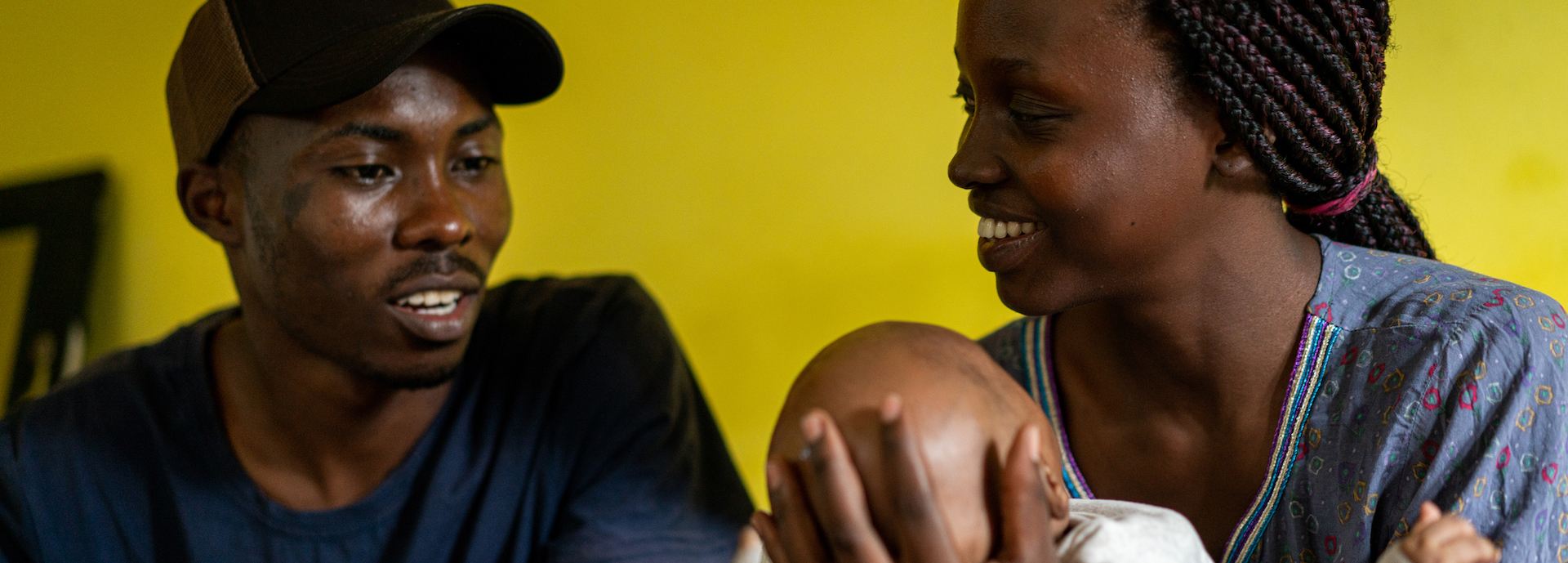Tamar Abrams
Former Communications Director, FP2020
Barbara Seligman
Chief Strategy & Growth Officer and Senior Vice President, International Programs, PRB

July 19, 2022
Tamar Abrams
Former Communications Director, FP2020
Barbara Seligman
Chief Strategy & Growth Officer and Senior Vice President, International Programs, PRB
Among global development topics, family planning remains a priority. The provision of family planning and reproductive health services is considered by some to be an end in itself; to many it is a way for women to gain autonomy in their lives; to others it is a political touchstone; and to yet others it is a tool for improving the well-being of women, families, communities, and nations. With family planning foundational to so many people in so many ways, how is it possible the research and data seem to lag behind other public health interventions?
Dr. Mahesh Karra is no slouch when it comes to the topic. He is Assistant Professor of Global Development Policy at the Frederick S. Pardee School of Global Studies at Boston University and the Associate Director of the Human Capital Initiative at the Global Development Policy Center. He spoke at the PRB Demography Talk on July 13, 2022, about two studies he led on family planning interventions in Lilongwe, Malawi.
The studies are particularly interesting because they were designed to test unusual interventions in an area of the world where the contraceptive prevalence rate among married women has been increasing significantly over the past 10 years and use is relatively high. The studies were intended to address the lack of rigorous impact evaluations of the effects of family planning interventions on birth spacing and timing of pregnancies as well as on health outcomes.
In Study 1, 2,143 married women in Lilongwe, who were pregnant or up to six months postpartum, were recruited and randomized into a treatment group or a control group. The treatment group received free transportation by private taxi to a high-quality family planning clinic, six counseling sessions provided by trained family planning counselors, and reimbursement for family planning services, including for the management of contraceptive side effects.
After two years of exposure to the intervention, the treatment group had a 44% lower relative risk of becoming pregnant again compared with the control group. Their contraceptive use was also almost six percentage points higher, with women in the treatment group shifting to longer-acting methods of contraception such as implants. Analyses of the intervention’s impact on child health found that children in the treatment group were taller for their age and performed better on cognitive measures than children in the control group.
Karra noted that counseling seemed to help shape women’s contraceptive preferences, and the free transportation may have allowed them to act on those preferences. He said that while transport may have been the intervention’s most costly component, it also may have been the most important for women pregnant or traveling with infants to be able to seek care.
Study 2 addressed the question of whether family planning service providers can offer patient-centered choice for women. Karra noted that family planning is unique in health care because it relies heavily on a bidirectional relationship between patients and providers, where patients come in with preferences for family planning methods and fertility and providers seek to elicit these preferences, inform women of their choices, and help them make the best decisions that reflect their preferences.
But are women, in fact, using the methods they prefer? Are providers helping them achieve full, free, and informed choice? This study involved a field experiment among 782 women in Lilongwe to test elements of user-centered counseling aimed at helping women identify and realize their preferences for family planning methods.
Following counseling, all women received free family planning services for one month that included private transportation to the family planning clinic, coverage of all family planning-related costs incurred during the service period, and mobile credit to make appointments with a taxi driver.
Women who received short, tailored counseling were more likely to be at odds with their stated ideal method and actual method of use at follow-up by 17.5%. While these tailored sessions may have encouraged women to more freely express or change their preferences, those preferences are not more likely to be realized. On the other hand, women who were encouraged to invite their husbands or partners to counseling were less likely to change their ideal method by 13.5% and more likely to switch from their currently used method to another method from counseling to follow-up by 23.8%. The findings suggest that while encouraging women to invite their husbands may have translated to a higher likelihood of realizing their stated preferences, it potentially may have resulted in the woman’s preference changing due to influence from her husband or partner.
Finally, Karra urged participants to work toward obtaining better data in family planning, particularly when it comes to preferences and demand. Because national averages and standard family planning program measures mask the complexity of family planning and fertility dynamics—especially in countries with high rates of modern contraceptive use—family planning advocates and providers should reevaluate what they want to measure relative to what they are currently measuring.
Discussants contributing to the seminar included Dr. Jean Christophe Fotso, the Founder and Executive Director of EVIHDAF (Evidence for Sustainable Human Development Systems in Africa) and an Adjunct Assistant Professor at the Gillings School of Global Public Health, University of North Carolina at Chapel Hill; and Ms. Nissily Mushani, a doctoral student in Agriculture and Applied Economics at the University of Nairobi.
Stay informed of the latest PRB events and products. Sign up for our newsletter.
